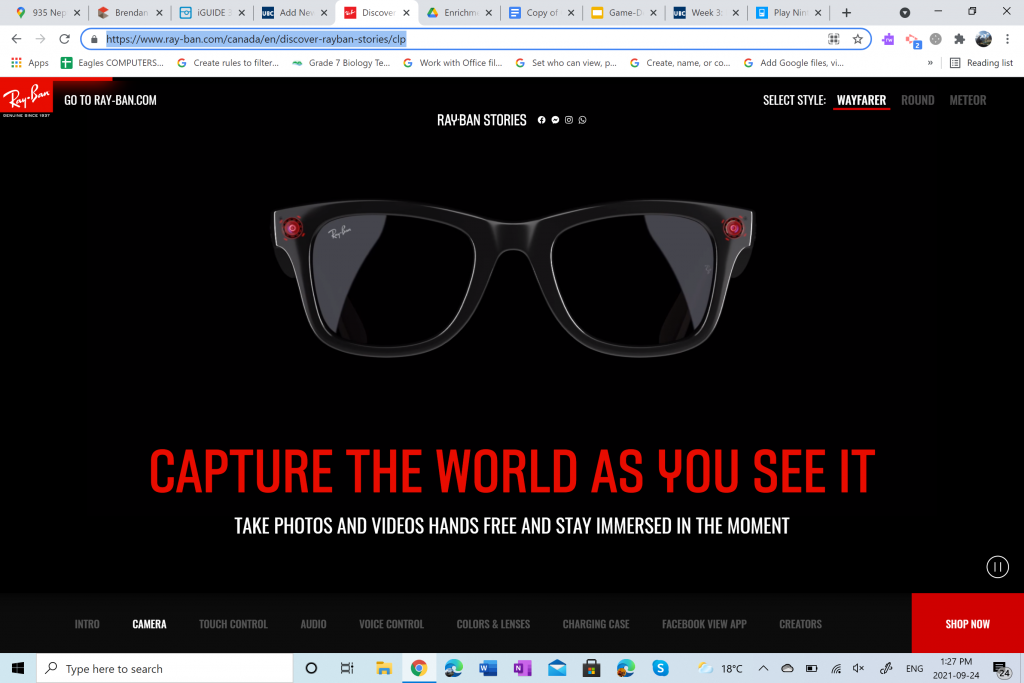
Technologically-enhanced glasses have seemed like a “holy grail” of sorts in the technology world. From Star Trek to Dragon Ball Z, the idea of technologically enhanced vision seems always on the precipce of development, and yet, even the mightiest of tech companies who have tried it have succumb to failure (anyone remember “Google Glass”?); perhaps this is because, like well-intentioned but poorly planned technolgy-mediated learning activities in education (that simply substitute for existing acitivities without affording new possibilities), if the tech is its own feature without a suitable form and function, it is doomed to be plagued with unforeseen problems (users frustrated with the interface, unnattractive aesthetics, unclear purpose or use) that make it utterly unnattractive.
With all that said, I find myself considering whether Ray-Ban and Facebook may have begun to “crack the code” to high-tech glasses in their novel “stories” frames that were released earlier this year (https://www.ray-ban.com/canada/en/discover-rayban-stories/clp); they ditch “AR” data display entirely in favour of novel opportunities for data collection (how quintessentially Facebook) in the form of a wearable technology. The glasses are almost akin to a smart watch but with a front-facing camera allowing users to broadcast almost exactly what they see in real time, and the embedded microphone and speaker also allows for hands-free calling and basic smart assistant commands. While certainly not as technologically impressive as an immediate heads up display feeding as data to enhance our worldview in real time, perhaps this stripped down offering is actually what makes it most likely to succeed: our brain “app store” is already perfectly capable of appreciating its use case, because most of us are already familiar with alternative products (smartwatches), and thus we can already imagine how we could use these glasses too (as a spectacled fellow, I found myself resisting to urge to order a pair and justifying it to my wife as “for my masters course”)!
The ethical implications are many of course; we already live in a world where any moment can be captured and saved for eternity, but not one where we can be so effortlessly recorded without even a visual cue to distinguish it! However, like any technology, its power affords both solutions to existing problems (e.g. recording police brutality) and it creates new ones in their place. Like any technological “Holy Grail” (or pandora’s box depending on your perspective), its emergence seems inevitable, but perhaps the gradual road is the better one to take.